Oceans
-
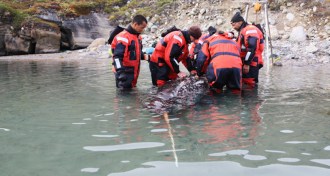 Animals
AnimalsHere’s what narwhals sound like underwater
Scientists eavesdropped while narwhals clicked and buzzed. The work could help pinpoint how the whales may react to more human noise in the Arctic.
-
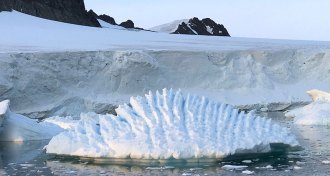 Climate
ClimateAntarctica has lost about 3 trillion metric tons of ice since 1992
Antarctica’s rate of ice loss has sped up since 1992 — mostly in the last five years, raising global sea level by almost 8 millimeters on average.
-
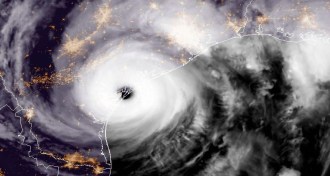 Climate
ClimateTropical cyclones have slowed over the last 70 years
Tropical cyclones are moving 10 percent slower, on average, than they did in the mid-20th century, potentially making them more dangerous.
-
 Paleontology
PaleontologyThe Chicxulub asteroid impact might have set off 100,000 years of global warming
About 66 million years ago, the Chicxulub asteroid impact set off 100,000 years of global warming, an analysis of oxygen in fish fossils suggests.
-
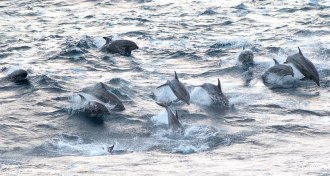 Climate
ClimateBull sharks and bottlenose dolphins are moving north as the ocean warms
Rising temperatures are making ocean waters farther north more hospitable for a variety of marine species.
-
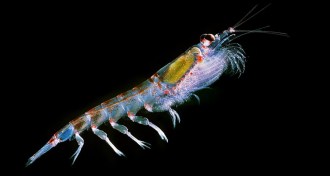 Animals
Animals‘The Curious Life of Krill’ is an ode to an underappreciated crustacean
A new book makes the case that Antarctic krill and the dangers they face deserve your attention.
-
 Oceans
OceansMasses of shrimp and krill may play a huge role in mixing oceans
Hoards of migrating shrimp and krill can cause large-scale turbulence in the ocean, a new study suggests.
-
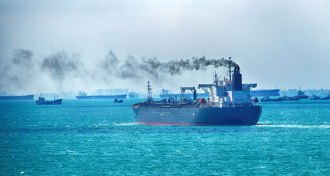 Climate
ClimateCargo ships must cut their emissions in half by 2050
A new international agreement places a cap on greenhouse gas emissions from international cargo ships.
-
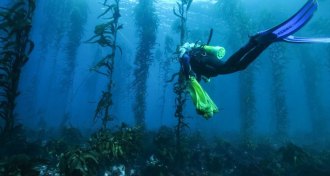 Oceans
OceansOcean heat waves are becoming more common and lasting longer
Over the last 100 years, the world’s oceans have sweltered through a rising number of heat waves.
-
 Environment
EnvironmentMicroplastics may enter freshwater and soil via compost
Compost is pinpointed as a source of plastic pollution, but environmental fate and effects unknown.
-
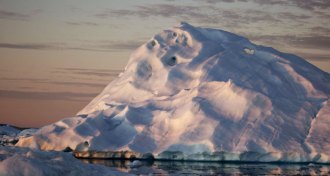 Climate
ClimateSeafloor map shows why Greenland’s glaciers melt at different rates
A new high-res look at the seafloor shows how ledges and dips affects whether relatively warm ocean water reaches the ice.
-
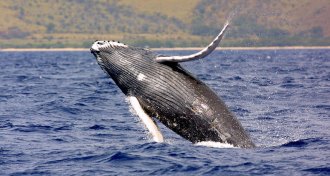 Animals
AnimalsHumpback whale bumps have marine biologists stumped
Christine Gabriele is taking tissue samples from humpback whales in Hawaii to determine why more and more have nodular dermatitis.